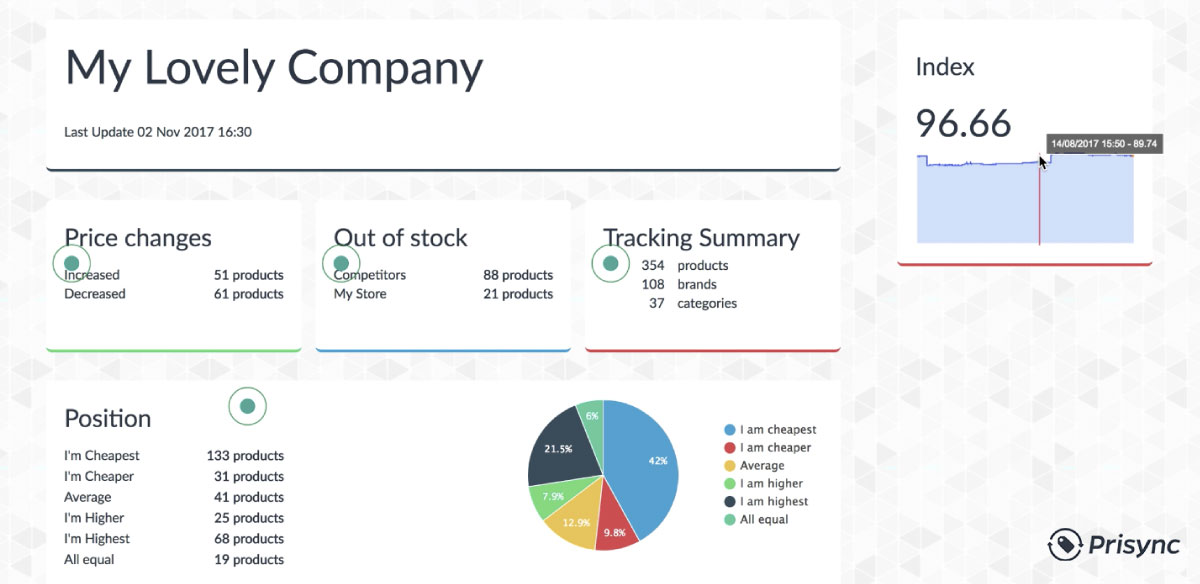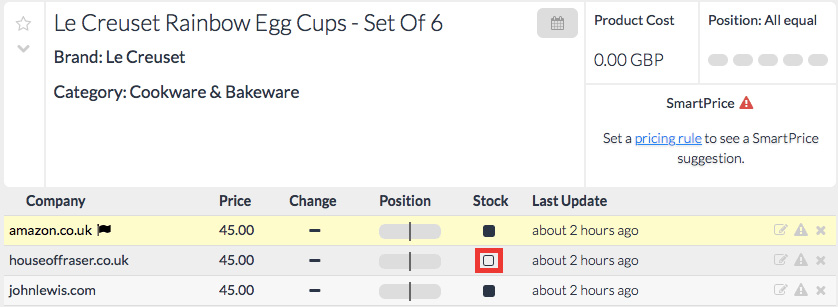Analyzing your competitors’ pricing analytics and strategies by keeping track of them may have a major impact on your company. You can make sure that you will continually adjust correctly and stay relevant to what regularly maintains you accomplishing your goals by keeping an eye on the prices other businesses charge.
What is competitive pricing analytics?
The pricing analytics research incorporates a comprehensive inspection of pricing strategies used by other businesses concerning your own. Competitive price analysis is therefore essential to the businesses in every way.
In quest of a better deal, customers examine the offers made by several retailers. These customers are attracted to retailers first and foremost that can gather and evaluate market data, map their position against competitors, and provide the best deals.
With competitor product and pricing information, firms may use competitive pricing to increase consumer attraction. Moreover, an effective pricing study can result in more sales, improved supplier relations, and additional revenue.

Benefits of competitive pricing analytics
- Avoid profit loss
Even if a product is a top seller, intense competition might result in a small profit margin. You may determine the position of your items within the competitive market and find a suitable selling price while still making a respectable profit through precise and comprehensive competition analysis.

- Opportunity for growth
Pricing management can also help you discover room to expand and gain market share within your sector or business. Your selections will become more goal-oriented if you are aware of your place in the market.
- Better customer insights
Customers’ perceptions of the product or service’s value are key information that is revealed through metrics for determining price effectiveness and profitability. Researching them can provide details about your market’s demand elasticity, for instance. It enables you to simultaneously enhance target segmentation. Pricing analysis is a smart way to understand how your target customers are reacting to the price of your competitors.
- Discovering new business chances
Getting accurate price information on the industry also enables ecommerce businesses to discover fresh methods of luring clients through competitive pricing tactics. Pricing analysis also aids in identifying which sales channels are more lucrative and hence more likely to see increased investment over the long and medium terms.
What should your pricing analysis contain?
The data used in the pricing analysis should first contain information on the costs and demand of ecommerce. You should also research market pricing and those of your competitors to these. Also, for clients to receive competitive pricing, competitors’ prices must be closely monitored. You might choose a high or low-competitive pricing plan based on them and the qualities of your products.
Based on your pricing analysis, you can try different pricing strategies like dynamic pricing.
Set Dynamic Pricing Rules

Dynamic pricing is a strategy where you change prices based on changing market trends and conditions. Prisync’s software helps you position wherever you want in your marketplace by setting dynamic pricing rules. All you have to do is enter your data.
Enter your cost, desired profit margin, and where you want to position (cheapest, 5% cheaper than the cheapest, etc.) You specify your product category, brand, and more.
Detect stock-out products of competitors
With the use of rival inventory tracking, you can watch your competitors and expand your consumer base in addition to raising your profit margins.
Understanding that a product that is out of supply is a fantastic opportunity to win over new clients. The likelihood of an online shopper purchasing your goods increases significantly if they are unable to discover a product from your competitor. So, concentrating on that product and allocating a portion of your marketing budget to it will be a wise decision.

Additionally, information on products that are out-of-stock will be a terrific indicator of the competitors’ top-performing products. If you discover the competitor’s out-of-stock product and designate it as a major competitor product, you are making a smart assumption.
So, you have identified the competitive products that perform the best. The next stage should be to examine that product’s marketing strategies:
- Start by keeping an eye on any social media efforts created especially for that product. What kind of platform do they utilize? Do they have an image-focused approach or more content based?
- Keep track of both organic and paid keywords and learn how to outrank them in search results.
- Examine the product’s price development. Understand how each market participant is placing their prices. Do they have the best deal? Average? Highest? Are there any particular seasons when big discounts are offered? To assist online sellers in comprehending the market and competitive conditions, Prisync always offers a complete price history.



Pricing analytics stands as the linchpin in crafting a successful and dynamic pricing strategy. Your exploration of the key components, from cost analysis to competitive evaluation and dynamic pricing models, is enlightening. Thanks for sharing this valuable information, illuminating the crucial role pricing analytics plays in achieving competitiveness and profitability in today's market landscape. Your insights are immensely appreciated!